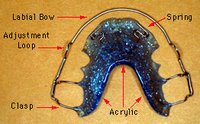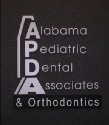 Have you ever entered a dental office and thought, “This sure smells funny in here”? There are certain smells common in most dental offices that are quite distinct. What is that scent? Well, as best I can determine there are three things that are quite distinctively dental scents. First is Acrylic monomer. That is the volatile liquid building blocks that make up plastic like materials in dentures and retainers. When a retainer is adjusted by grinding the acrylic, you usually pick up a little of that scent. This is especially true when your retainer is brand new. There is a smell more often found in pediatric offices called Formocresol, a preservative that is used in a procedure called a pulpotomy.
Have you ever entered a dental office and thought, “This sure smells funny in here”? There are certain smells common in most dental offices that are quite distinct. What is that scent? Well, as best I can determine there are three things that are quite distinctively dental scents. First is Acrylic monomer. That is the volatile liquid building blocks that make up plastic like materials in dentures and retainers. When a retainer is adjusted by grinding the acrylic, you usually pick up a little of that scent. This is especially true when your retainer is brand new. There is a smell more often found in pediatric offices called Formocresol, a preservative that is used in a procedure called a pulpotomy.
Finally there is Eugenol, or oil of cloves. It is used in temporary filling materials. It actually smells quite good as cloves are usually pleasant. Many years ago there were several other things as well, but as science advances the scents are becoming more pleasant and less noticeable.
 Now you are just as likely to smell the Piña-Colada scented topical anesthetic, the Strawberry scented nitrous oxide nosepiece (Mr. Nose), or the Cookie Dough flavored prophylaxis paste. Hopefully, those are the pleasant scents your children will remember most.
Now you are just as likely to smell the Piña-Colada scented topical anesthetic, the Strawberry scented nitrous oxide nosepiece (Mr. Nose), or the Cookie Dough flavored prophylaxis paste. Hopefully, those are the pleasant scents your children will remember most.











10 comments:
Is it odd that I enjoy the smell of formocresol? I have come to the conclusion that the lingering smell of formocresol is definetly the cause of the common "dentist office smell". But that's beside the point...do you use any sort of handout to describe clinical findings and tx. recommendations? I think your blog is absolutley fantastic.
Funny, I was just talking with one of my partners about how stinky "formo" is. If I ever do an OR case it seems to stay with you for a while throughout the day.
Yes, when we propose treatment, we write out an estimate split into appropriate appointments and showing estimated insurance coverage and the like. This is mainly for financial information. Also, with more complex procedures like sedation, we give out informed consent forms and instructions, etc.
Haha..it's fantastic the way formo can linger for hours on end. I am trying to come up with a general handout for parents regarding clinical findings. Something they can review with a spouse or look over as a memory refresher for large tx. cases. They always go home with a pre-tx estimate. Something such as: #A needs a compostie resin restoration (followed by an explanation of a CR), etiology of decay, and maybe an explanation of the need for quadrant dentistry. Do you use anything like that?
No, just what I mentioned, at least not yet.
Funny. That's why all dental offices have the same smell... Lol!
Is there any way to get rid of that smell of formo? I spilled half a bottle in one of the operatories and it has been such a stron smell for over a week. We need it gone and nothing has helped!!!
Ha! That happened to us several years ago. It smelled like formo for a few months. Sorry, I don't remember exactly what we did, but nothing much helped. Eliminate any surface that is replaceable, clean the others, but basically, wait, the formo has to evaporate over time.
hello.
i recently was administrated nitrous oxide today for periodontal cleaning since it might be too painful and i have anxiety real bad.. i was wondering is it normal to still feel a little loopy afterwards.. i had it done around 330pm and it's now almost 9 and I feel as though I have a huge hangover.. I'm female, 4"11 about 190pounds.. i do have high blood pressure which im currently taking meds for and suffer from anxiety..
concerned
Nikki,
Nitrous oxide as administered in dental offices, wears off very rapidly through diffusion out of the blood through the lungs. Most effects are gone within 15 to 30 minutes. Some may linger for like an hour. Any other effects one feels much later are more likely due to anxiety, other medications, adrenaline secreted during the procedure followed by relief the appointment is over, etc. It's hard to say, but physiologically, the inert gas is diffused out quite rapidly.
Oh, I'd call your physician or emergency room if things continue and get worse and you are still concerned.
Post a Comment